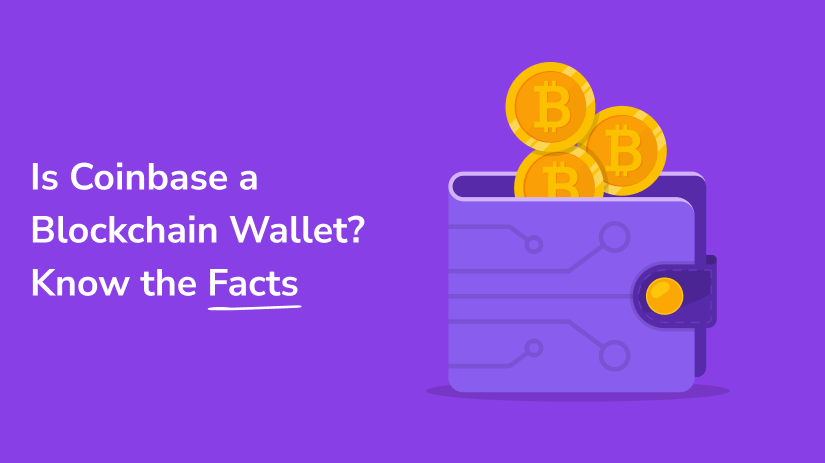In the ever-evolving landscape of cryptocurrency and blockchain technology, platforms like Coinbase have emerged as household names, offering users access to a plethora of digital assets and services.
However, amidst the buzz surrounding Coinbase, a common question arises: Is Coinbase truly a blockchain wallet?
Let’s delve into the nuances and understand the facts behind this query.
Connect with us for Fintech Development Needs
Trusted by companies like Plaid, Yodlee, Codat.
What is Coinbase?

Coinbase is undeniably one of the most prominent players in the cryptocurrency industry.
Established in 2012, it has swiftly grown into a leading exchange platform, allowing individuals to buy, sell, and store various cryptocurrencies such as Bitcoin, Ethereum, Litecoin, and many more.
Its user-friendly interface and robust security measures have attracted millions of users worldwide, solidifying its position as a market leader.
Coinbase: More Than Just a Wallet
While Coinbase does provide wallet services for storing cryptocurrencies, categorizing it solely as a blockchain wallet might be oversimplifying its multifaceted nature. Coinbase API integration encompasses a broader spectrum of services beyond just wallet functionalities.
Exchange Platform
At its core, Coinbase operates as a cryptocurrency exchange, facilitating the trading of digital assets between users. This feature distinguishes it from traditional blockchain wallets, which primarily focus on storage and transactions.
Brokerage Services
Coinbase offers brokerage services, allowing individuals to purchase cryptocurrencies directly using fiat currency. This functionality extends beyond the capabilities of a typical blockchain wallet, which often requires users to acquire digital assets through other means before storing them in the wallet.
Integration with Financial Systems
As a fintech developer and company, Coinbase has integrated its platform with traditional financial systems, enabling seamless transactions between cryptocurrencies and fiat currencies. This integration goes beyond the scope of a conventional blockchain wallet, which typically operates independently of traditional banking channels.
Connect with us for Fintech Development Needs
Trusted by companies like Plaid, Yodlee, Codat.
The Role of Blockchain Wallets
Blockchain wallets, in their essence, serve as digital repositories for storing cryptographic keys that enable users to access and manage their cryptocurrencies securely.
These wallets interact directly with the blockchain network, facilitating transactions and providing users with control over their digital assets.
Differentiating Coinbase from Traditional Blockchain Wallets
While Coinbase incorporates wallet functionalities, its overarching business model extends far beyond the realm of a conventional blockchain wallet.
As a fintech software development company, Coinbase continually evolves its platform to offer a comprehensive suite of services catering to both novice and experienced cryptocurrency enthusiasts.
Conclusion
In conclusion, while Coinbase does offer wallet services, it transcends the conventional definition of a blockchain wallet.
As a leading cryptocurrency exchange and fintech developer, Coinbase amalgamates various functionalities, including wallet services, brokerage, and integration with traditional financial systems.
Understanding the distinctions between Coinbase and traditional blockchain wallets is crucial for users seeking to navigate the cryptocurrency landscape effectively.
By acknowledging the multifaceted nature of platforms like Coinbase, individuals can harness the full spectrum of services offered, thereby maximizing their experience in the world of digital assets and blockchain technology.
Happy Coinbase Integration!!
Connect with us for Fintech Development Needs
Trusted by companies like Plaid, Yodlee, Codat.





